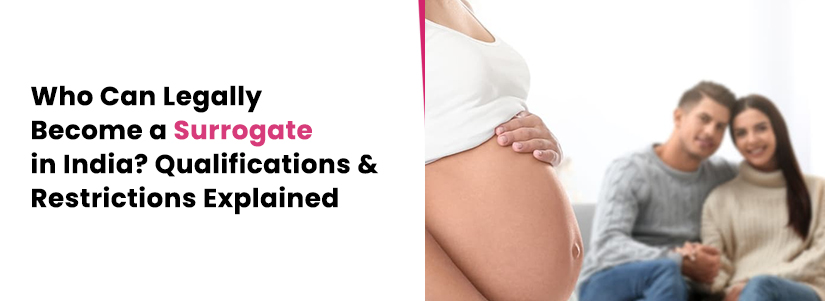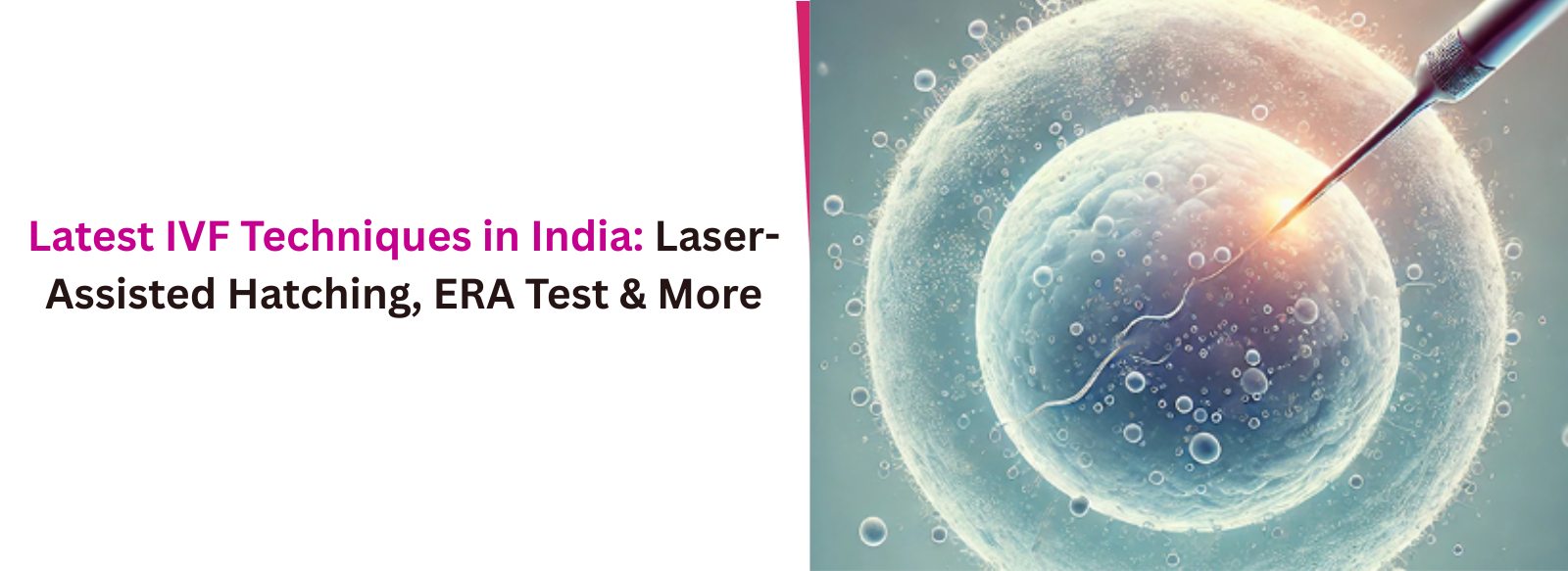In July 2025, the Hyderabad surrogacy scam involving Universal Srushti Fertility Centre shocked the nation. Multiple FIRs were filed after allegations of baby-selling, forged surrogacy agreements, and DNA mismatches came to light. Several doctors were arrested, exposing a deeper issue. The rise of underground surrogacy rackets exploiting legal loopholes. The case has raised serious concerns about who can legally become a surrogate in India and whether clinics are adhering to the Surrogacy (Regulation) Act, 2021.At Vardaan IVF Hospital, we strictly follow all legal and ethical protocols. We do not engage in commercial surrogacy or any form of unregulated treatment. Your trust, safety, and legal protection are always our top priorities. After the news came out, we understood why it happened. It was mostly because of lack of information and awareness around surrogacy and its legal scenarios. This article shares all the important info about surrogacy.
Surrogacy in India (Legal Overview)
Surrogacy is a process where a woman (the surrogate) carries and delivers a child for an intending couple who are unable to conceive naturally. There are two types of surrogacy: altruistic and commercial. Altruistic surrogacy involves no monetary compensation except for medical expenses and insurance, while commercial surrogacy includes payment or profit for the surrogate mother. Commercial surrogacy is now completely banned in India.Since January 2022, only altruistic surrogacy is legally permitted under the Surrogacy (Regulation) Act, 2021. This law, along with the Assisted Reproductive Technology (Regulation) Act, 2021, governs all surrogacy-related procedures in India. Oversight and implementation are managed by National and State ART & Surrogacy Board of India, which regulate clinics, approve applications, and ensure ethical practices are followed across the country.Who Can Legally Become a Surrogate Mother in India?
Under the Surrogacy (Regulation) Act, 2021, only a specific category of women are legally allowed to become surrogates in India. Do you want to know more about the surrogacy process in India. This is to ensure that surrogacy remains ethical, safe, altruistic and free from financial exploitation or coercion. The law has laid down clear eligibility criteria for women willing to act as surrogates, making it a highly regulated process.To legally become a surrogate mother in India, a woman must:- Be an Indian citizen
- Be between 35 and 45 years of age.
- Be married and have at least one biological child of her own.
- Be a first-time surrogate (cannot have been a surrogate before).
- Be a close relative of the intended couple (the term “close relative” is not clearly defined in the law).
- Be medically and psychologically fit as certified by a registered medical practitioner.
- Provide informed, written consent without any pressure or coercion.
- Not accept any compensation, except reimbursement for medical expenses and insurance coverage.
Who Cannot Become a Surrogate in India?
While the law outlines who can be a surrogate, it also clearly defines who cannot take on this role. These exclusions are designed to prevent unethical practices, safeguard the well-being of the surrogate and the child, and eliminate any chances of commercial exploitation or legal disputes. Any deviation from these restrictions can lead to legal consequences for both the surrogate and the commissioning couple.A woman cannot become a surrogate in India if she:- Is younger than 35 or older than 45 years.
- Is a single woman, including unmarried or divorced (they may only qualify as intended mothers under specific conditions).
- Has already acted as a surrogate in the past.
- Is a foreigner, NRI, OCI, or PIO.
- Has serious medical or psychological conditions, or is acting under coercion or financial pressure.
- Has a criminal background or is involved in illegal activities.
Intended Parents: Who is Eligible for Surrogacy in India?
The Surrogacy (Regulation) Act, 2021 permits only a narrow group of individuals to become intending parents through surrogacy. These criteria aim to ensure that surrogacy is a last resort for those with genuine medical infertility and not misused as a lifestyle choice or commercial alternative. Couples or individuals must meet specific legal, medical, and age-related conditions to qualify.To be eligible for surrogacy in India, the intending parents must be:- Married Indian heterosexual couples with:
- A minimum of 5 years of marriage.
- Documented proof of medical infertility.
- No surviving biological, adopted, or surrogate-born child.
- Age: Husband between 26–55 years, Wife between 25–50 years.
- Single women who are widowed or divorced between the ages of 35–45 years may also be eligible
- A Certificate of Infertility from a registered medical practitioner.
- A Certificate of Essentiality issued by the appropriate authority after medical evaluation and legal screening.
Legal Penalties for Violating Surrogacy Laws in India
The Surrogacy (Regulation) Act, 2021 enforces strict penalties for any individual or clinic found violating the law. These provisions are intended to deter unethical practices, protect surrogate mothers and children, and maintain the integrity of altruistic surrogacy in India. Whether it’s engaging in commercial surrogacy, using unapproved clinics, or forging documentation, the consequences are severe and legally binding.Key penalties for violations include:- Commercial surrogacy is a criminal offence under Indian law.
- First-time violation: Up to 5 years imprisonment and ₹5,00,000 fine.
- Repeat offence: Up to 10 years imprisonment and ₹10,00,000 fine.
- Offences are cognizable, meaning police can arrest without a warrant.
- Non-bailable and non-compoundable, meaning they cannot be settled outside court.
- Both clinics and individuals (including commissioning parents or agents) may be prosecuted.
Grey Areas and Controversies in Surrogacy Law in India
While the Surrogacy (Regulation) Act, 2021 aims to make the surrogacy process ethical and transparent, there are several ambiguous provisions and limitations that have sparked debate among medical experts, legal professionals, and intending parents. These grey areas raise concerns about accessibility, fairness, and practical enforcement, potentially pushing some families toward unsafe or illegal alternatives. Key concerns and controversies include:- The term “close relative” is not clearly defined, leaving room for loopholes and misuse.
- LGBTQIA+ individuals, single men, and foreign nationals are entirely excluded, raising questions about equality and discrimination.
- Surrogates may experience emotional distress, especially since the law allows them to be a surrogate only once.
- In today’s nuclear family structures, many couples don’t have eligible female relatives within the defined age and health bracket.
- Overly restrictive rules may fuel underground surrogacy markets, leading to unregulated and risky practices just like recent surrogacy scams in Telangana, Hyderabad and Visakhapatnam.
Should You Consider Surrogacy in India?
If you’re a couple struggling with genuine medical infertility and have no surviving child, surrogacy in India can offer a compassionate and legal path to parenthood. However, it’s important to approach the process with full awareness, legal compliance, and ethical intent. Before choosing surrogacy, make sure to:- Consult a registered and licensed ART clinic for medical and legal guidance.
- Follow all legal procedures, including obtaining the required certificates and approvals.
- Ensure your surrogate meets all legal criteria and gives informed, voluntary consent.
- Avoid any illegal arrangements, including offers of “paid surrogates” or unregistered agents.







